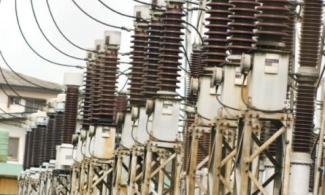
The organisation urged President Buhari to “direct the Minister of Power, Goddy Jedy-Agba and the Chairman/CEO, Nigerian Electricity Regulatory Commission (NERC), Professor James Momoh to immediately reverse the unlawful, unjust and unreasonable increase in electricity tariff, which reportedly occurred in December 2022.”
The Socio-Economic Rights and Accountability Project (SERAP) has urged President Muhammadu Buhari to reverse the hike in electricity tariff.
The organisation urged President Buhari to “direct the Minister of Power, Goddy Jedy-Agba and the Chairman/CEO, Nigerian Electricity Regulatory Commission (NERC), Professor James Momoh to immediately reverse the unlawful, unjust and unreasonable increase in electricity tariff, which reportedly occurred in December 2022.”
SERAP also urged Buhari to “ensure the investigation of the spending of public funds as ‘investments and bailouts’ by successive governments to electricity distribution companies (DisCos) and generating companies (GenCos) since 2005, and prosecution of cases of corruption and mismanagement.”
Following the reported approval by the Nigerian Electricity Regulatory Commission (NERC), electricity tariffs were increased by DisCos in the country in December 2022. Several prepaid customers have reportedly confirmed the increase. Both the Minister of Power and NERC have refused to confirm or deny the increase.
In the letter dated January 7, 2023 and signed by SERAP deputy director Kolawole Oluwadare, the organisation said: “The increase in electricity tariff would exacerbate the extreme poverty across the country, and undermine the ability of millions of Nigerians to satisfy basic human needs.”
SERAP also noted that “the increase in electricity tariff failed to follow due process. It is entirely inconsistent and incompatible with the provisions of the Nigerian Constitution of 1999 [as amended], the Electric Power Sector Reform Act and the country’s international human rights obligations.”
According to SERAP, “millions of Nigerians continue to live in darkness despite the spending by successive governments of trillions of naira as investments and bailouts to electricity companies.”
The letter read in part: “The increase is unjustified, especially given the unreliable, inefficient and poor quality of electricity in the country. Rather than providing electricity discounts to poor Nigerians, successive governments continue to give bailouts to electricity companies.
“We would be grateful if the recommended measures are taken within 7 days of the receipt and/or publication of this letter. If we have not heard from you by then, SERAP shall consider appropriate legal actions to compel your government to comply with our request in the public interest.”
“Your government should have used the report by the National Bureau of Statistics (NBS), which shows damning revelations that some 133 million Nigerians are poor as a basis to improve access to regular electricity supply, and extend electricity to remote rural households.
“The latest increase in electricity tariff is coming on the heels of the NBC report which shows that over half of the population of Nigeria are multidimensionally poor and cook with dung, wood or charcoal, rather than cleaner energy. High deprivations are also apparent nationally in sanitation, time to healthcare, food insecurity, and housing.”
“Section 14(2)(b) of the Nigerian Constitution of 1999 [as amended] provides that, ‘the security and welfare of the people shall be the primary purpose of government.’
“Under Section 16(1)(a)(b), your government has the obligations to ‘harness the resources of the nation and promote national prosperity and an efficient, a dynamic and self-reliant economy’, and to ‘secure the maximum welfare, freedom and happiness of every citizen,’" it said.